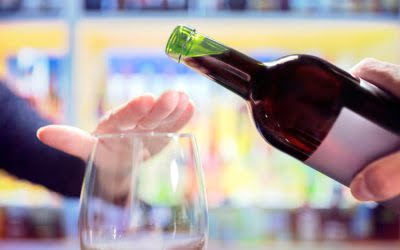People who have alcohol use disorder that goes undiagnosed may have an especially difficult time cutting back on their alcohol consumption. If you’re struggling to stick to a taper or do not trust yourself to moderate your alcohol use, having strict supervision and support can help you meet your recovery goals. When an individual http://trindelka.net/forum/kultura/ket-fon-di-kat-von-d-t3441.html has developed a substance use disorder or dependence on alcohol, stopping its use outright can seem virtually impossible.

Talk to Your Doctor

The https://edinstvo-news.ru/page/6/ second situation involves counting the daily drinks and switching them to a beverage with lower alcohol content, such as beer. Switching to beer from hard liquor is safer because it is easier to control the amount of beer that is consumed and is harder to binge drink. Consuming a lighter alcoholic drink like beer also makes it easier for someone to stay hydrated throughout the taper.
- When someone stops drinking, they must decide whether to quit “cold turkey” or taper their alcohol use.
- While the safest way to taper is with professional help in a detox facility, this may not be an option for everyone.
- Lastly, engaging in alcohol therapy can also make a major difference in your healing journey.
How to Safely Wean Yourself off Alcohol Dependency
It’s important to seek urgent medical care if you experience any of these symptoms. Most https://barmintea.ru/bs/zvezdy-narkomany-biografii-i-interesnye-fakty-rossiiskie-zvezdy/ people experience the most severe symptoms from about 36–72 hours after stopping drinking. Alcohol is a central nervous system depressant that affects your brain. When you quit drinking or wean off alcohol, your body will adjust to the lack of alcohol in your body. Inpatient treatment may be an expensive option in terms of time and money.
Your Guide to Tapering Off Alcohol
- With these things in mind, it’s important to weigh the pros and cons of tapering your alcohol use to make a fully informed decision.
- Both methods allow the body to adjust gradually and reduce overall alcohol intake.
- When they suddenly quit drinking, the brain continues its hyperactivity, but alcohol no longer suppresses the effects.
- Below I share some key information so you can determine if weaning off alcohol is right for you.
- Tapering can help minimize these symptoms, but you might still experience some of them while your body adjusts to the lack of alcohol.
- The best schedule varies based on how much you drink each day and your overall health.
Alcohol causes serious changes in the brain, and prolonged symptoms such as sleep problems, mood changes and fatigue may take months to overcome, according to the U.S. If you’re used to drinking less than 20 beers per day, HAMS recommends reducing your alcohol consumption by two beers per day until you achieve sobriety. These programs offer more flexibility than residential rehab, while still supporting a healthy lifestyle for people in recovery. Sober living homes provide a comfortable, safe place for you to focus on your healing. Tapering off alcohol is a step in the right direction, but there’s more to the story. It’s vital in this process to have professional help, so you can stay safe and as comfortable as possible.

Quitting alcohol completely can be a challenge, but there are more ways to do it than ever before. But, perhaps most importantly, understand that setbacks happen and that progress takes time or may look different than imagined. John C. Umhau, MD, MPH, CPE is board-certified in addiction medicine and preventative medicine. For over 20 years Dr. Umhau was a senior clinical investigator at the National Institute on Alcohol Abuse and Alcoholism of the National Institutes of Health (NIH). Sitting and talking with others who share your struggle can help you feel supported.
- Alcohol withdrawal occurs when neurotransmitters that combat the effects of alcohol on the nervous system suddenly have nothing to counteract them.
- Replacing alcoholic beverages with non-alcohol drinks is a great method of helping during a taper.
- If you experience withdrawal symptoms, speak to a doctor about tapering safely.
Unsupervised Medical Care
Medical detox programs for alcohol dependency commonly offer medications to ease the discomfort or pain of withdrawal. This is a benefit that isn’t available to all who attempt to taper at home. Medicines can be used to reduce nausea, severe anxiety, other flu-like symptoms, and treat seizures. Serenity at Summit is a network of addiction treatment facilities in the Northeastern United States, with centers in New Jersey and Massachusetts. We offer comprehensive, evidence-based treatment to support individuals in achieving and maintaining long-term sobriety.
Tapering can help you overcome alcohol dependence, which is a side effect of chronic alcohol use that causes cravings and withdrawal. Detox doesn’t treat addiction, which is a disease characterized by compulsive behaviors, such as chronic alcohol use. A Southern California detox and residential program offering personalized, evidence-based treatment in a tech-friendly and pet-friendly atmosphere. Nestled in the private hills of Los Angeles, Hollywood Hills Recovery is a boutique substance use treatment center offering holistic care. To create an effective taper, you must know how much you drink daily on average.




























































